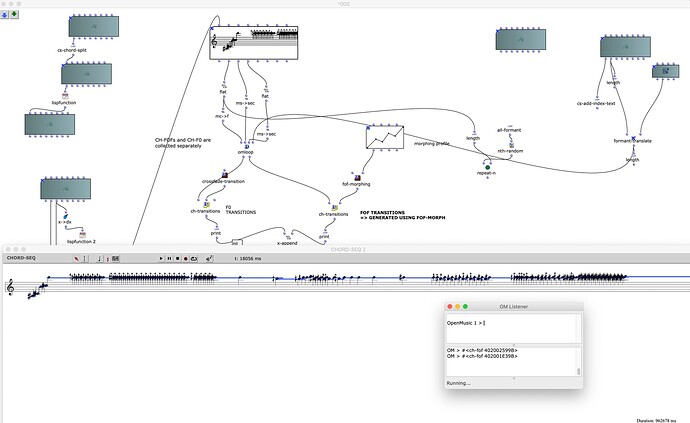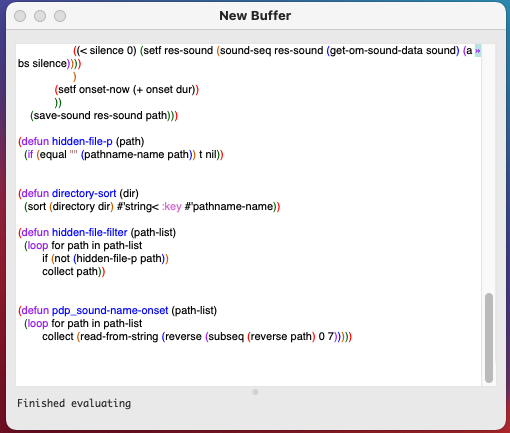Hello,
I am using the om-chant with the f0 and fof transitions (based on the tutorial patch 35) to synthesize a vocal track, from a mono chord-seq with 650 notes and about 20 minutes long. The synthesis has taken several hours, om is running with 100% cpu, but it seems that the synthesis process is not begin yet.
(Using the same patch to synthesize a 3-second sound with 10 notes takes about 45 second and works well with a super quality).
I wonder if the Chant synthesizer has a limit on the number of notes to be synthesized for each time, or is there maybe a better strategy or tools in Chant to get the similar quality of sound but more economic? Or is there some mistakes I could make in the organization of the Chord-seq.
Thank you very much in advance (404.9 KB)
Bests,
Jialin



